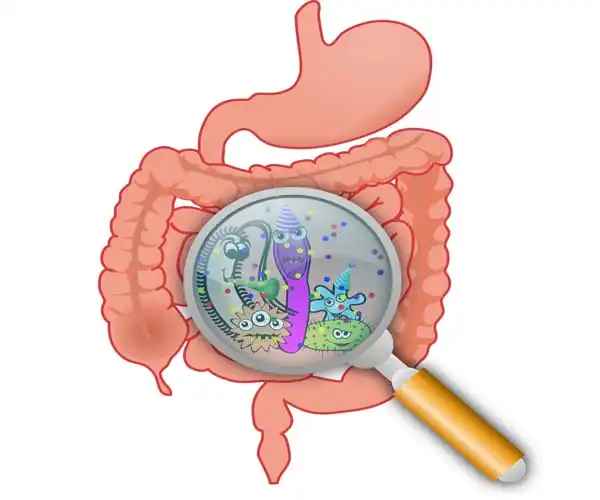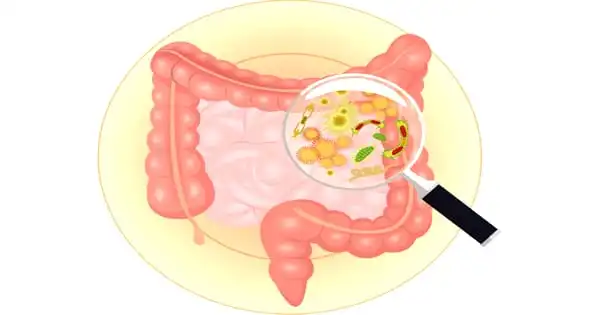Wound healing, as a normal biological process in the human body, occurs in four distinct and highly programmed stages: hemostasis, inflammation, proliferation, and remodeling. For a wound to heal properly, all four phases must occur in the correct order and time frame. Many factors can disrupt one or more stages of this process, resulting in improper or impaired wound healing.
An international team led by Case Western Reserve University School of Medicine discovered novel properties of the protein Gasdermin B that promote gastrointestinal cell repair in people with chronic inflammatory disorders such as Crohn’s disease and ulcerative colitis.
The new findings, which were recently published in the journal Cell, are significant because the impact of Gasdermin B (GSDMB) on healing epithelium – a type of body tissue that lines the organs that have direct contact with the external environment – will play a key role in wound formation research and the development of novel therapeutics to improve wound repair, according to Theresa Pizarro, lead study author and the Louis Pillemer Professor of Experimental Pathology at the School of Medicine. In addition to medical school colleagues on campus, researchers from the Cleveland Clinic, Texas, England, and Greece participated.
We discovered the functional consequences of these GSDMB genetic variants in our research. Thus, while IBD patients may produce higher levels of GSDMB during disease flares, the GSDMB protein produced by genetic variants interferes with the ability of epithelial cells to regenerate and form a healthy barrier critical to healing, for example, in ulcers in patients with ulcerative colitis.
Theresa Pizarro
Gasdermin B
Gasdermins are a protein family that has been linked to pyroptosis, a type of cell death caused by infections and inflammation that contributes to conditions such as ulcerative colitis and Crohn’s disease.
Gasdermin B (GSDMB) is a member of that protein family that, unlike other gasdermin proteins, does not cause pyroptosis, particularly in epithelial cells, but instead contributes to the health of the gastrointestinal tract – a significant discovery for the development of future therapeutic treatments.
Previous research has shown that people with Gasdermin B genetic variations are more likely to develop inflammatory disorders such as asthma or inflammatory bowel disease (IBD).

“Little was known about the mechanisms of how this happened,” Pizarro explained. “We discovered the functional consequences of these GSDMB genetic variants in our research. Thus, while IBD patients may produce higher levels of GSDMB during disease flares,” she explained, “the GSDMB protein produced by genetic variants interferes with the ability of epithelial cells to regenerate and form a healthy barrier critical to healing, for example, in ulcers in patients with ulcerative colitis.”
The study
The researchers used cutting-edge techniques to analyze samples from Crohn’s disease and ulcerative colitis patients, including single-cell RNA sequencing, CRISPR/Cas9, and epithelial organoid cultures. When compared to GSDMB levels found in healthy individuals, the results confirmed significant increases in GSDMB in biopsies of those with IBD, particularly ulcerative colitis.
The findings unexpectedly showed the lack of epithelial cell death due to GSDMB; instead, this increased level led to:
- Proliferation, or the growth of new cells;
- Migration, or the movement of cells;
- And decreased adhesion dynamics — the attractive forces between cells and other surfaces that affect motility.
These processes, when combined, promote epithelial layer restoration and effective wound healing, according to Pizarro.
“Future therapies targeting gasdermin B are not necessarily limited to IBD or other chronic inflammatory states of the gastrointestinal tract,” Pizarro explained, “but have far-reaching implications for effective wound-healing of the lungs, skin, and other organs interfacing with the external environment that require maintenance of an efficient epithelial barrier.”
Pizarro attributed “this groundbreaking discovery to the collaborative and concerted efforts of immunologists, gastroenterologists, cell biologists, and bioinformaticians from around the world,” including those from Oxford University, the University of Athens, Baylor College of Medicine, UT Southwestern, and her colleagues at the Cleveland Clinic Lerner Research Institute and Case Western Reserve.














